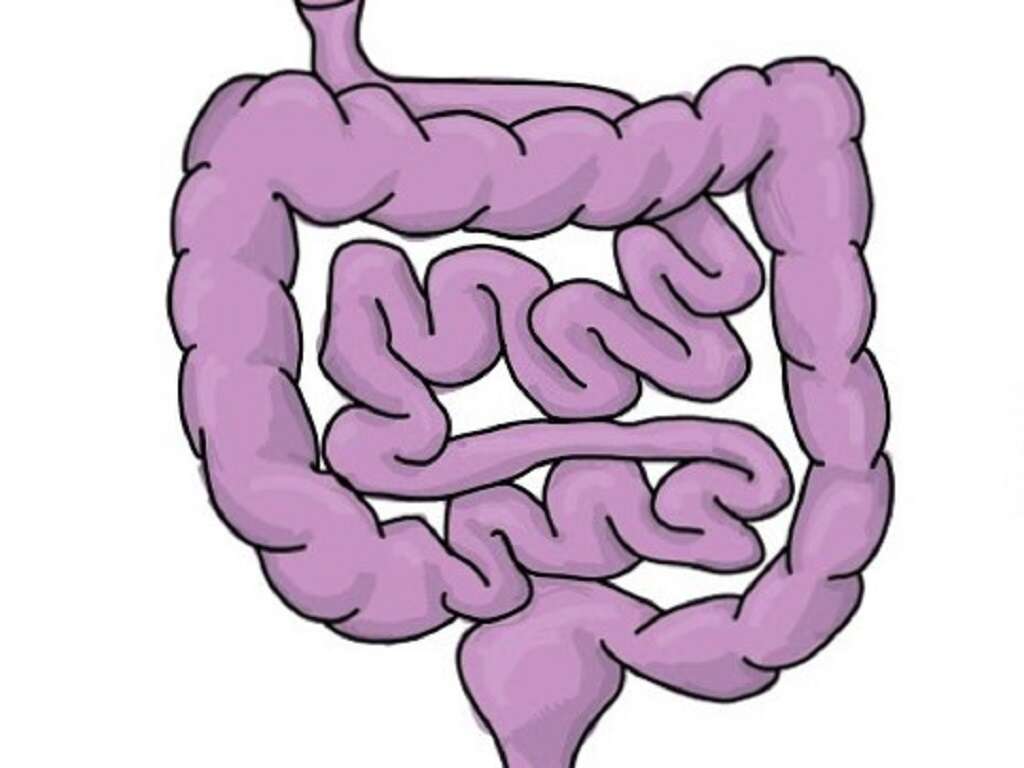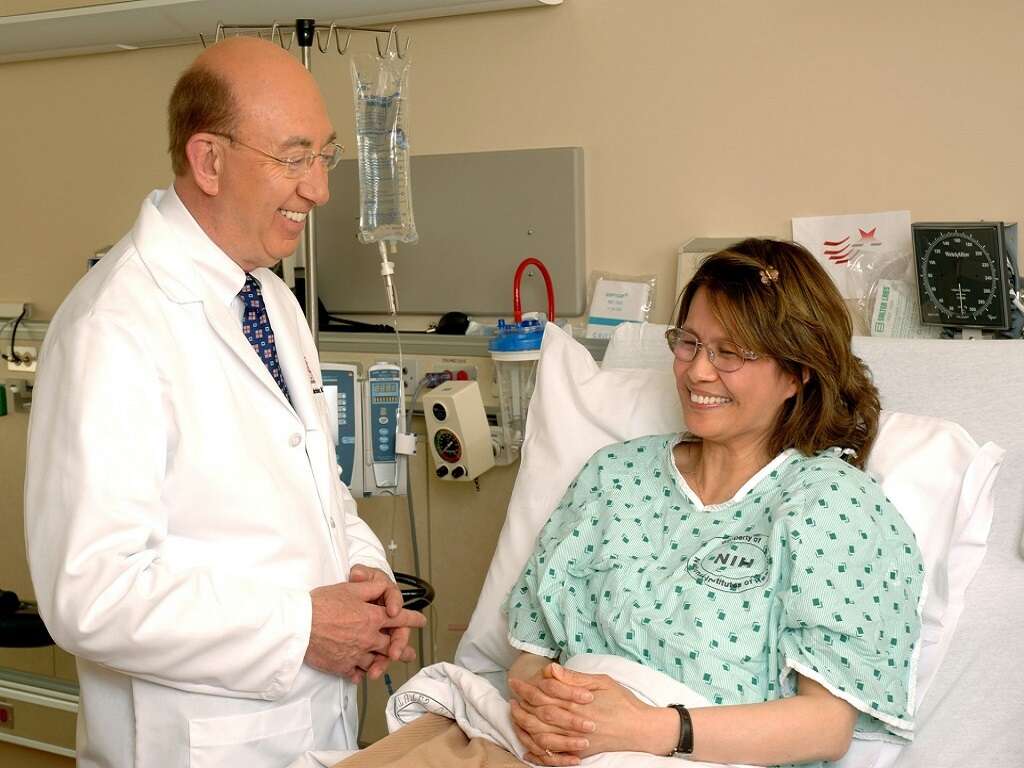10 Causes of Bloated Stomach
Abdominal bloating or a bloated stomach is a common and non-specific symptom that can be seen in various conditions. It can affect individuals of all ages, races, or genders. A bloated stomach can be associated with organic disorders, functional gastrointestinal disorders, or appear by itself. The affected individual usually complains of a tight and full abdomen. In rare cases, the bloating can also cause pain and shortness of breath. Pain associated with abdominal bloating is often sharp and tends to change locations quickly.
The pain can be so intense that patients may mistake it for heart-related pains especially if it radiates to the upper left side of the chest. Pain felt on the right side may also be confused with gallbladder or appendix issues. A bloated stomach can be managed by treating the underlying cause of the bloated stomach. The discomfort can be alleviated with dietary modifications and medications.

Cause #1: Fiber
There are many cases of abdominal bloating due to having an improper diet. The gas occurs because of the presence of bacteria in the colon. The bacteria produce gas after digesting fiber. The irregular and inadequate intake of fluids and fiber can also lead to bloating and constipation. The most common source of natural fiber includes vegetables, fruits, and grains like oat bran or wheat.
The fiber present in plants is not easily digested by the human gastrointestinal tract. Soluble fiber is easily fermented into gases while insoluble fiber absorbs water as it moves throughout the digestive system, helping for digestion.

Cause #2: Gas
There are two sources of gas in the gastrointestinal tract. The first is from the bacteria that inhabits the intestines and the second is swallowed air as one eats or drinks. The stomach can easily become bloated if air is swallowed during rapid drinking or eating.
The body will then remove these gases through burping or passing gas. Burping is the removal of gas from the mouth while farting occurs through the anus.

Cause #3: Constipation
One of the associated symptoms of constipation is abdominal bloating. Constipation occurs when there are hard stools, infrequent bowel movements, or the need to strain when passing motion. Constipation can be improved through lifestyle changes such as increasing fiber intake, getting more exercise, and drinking enough fluids.
Symptoms such as intense pain, blood in the stool, pain in the rectum, and unexplained weight loss are red flags. Patients with these symptoms should seek medical attention.

Cause #4: Heartburn and Reflux
Heartburn occurs when there is a painful sensation in the chest caused by reflux. These sensations can be described as a burning or dull ache that occurs in the sternum or central chest. Reflux is the backflow of acid from the stomach into the esophagus. Triggers of heartburn includes medications, foods, stress, and obesity.
The discomfort in heartburn may also radiate to the throat, neck, or angle of the jaw. Heartburn is also commonly seen among pregnant women. Patients with heartburn or reflux may also experience abdominal bloating and burping.

Cause #5: Lactose Intolerance
Lactose intolerance is a condition where individuals have a lower ability to digest lactose, which is found in dairy products. Symptoms of lactose intolerance include abdominal bloating, pain, gas, diarrhea, and nausea. Symptoms start about 30 minutes to 2 hours after eating milk-based foods. The severity of the symptoms mostly depends on the amount of dairy based foods consumed.
Lactose intolerance occurs as there is a lack of the enzyme lactase in the small intestines. It is estimated that lactose intolerance affects as many as 65 percent of the global population with rates varying between different regions. The prevalence of lactose intolerance seems to be highest in parts of Africa and Asia.

Cause #6: Premenstrual Syndrome
Premenstrual syndrome describes the emotional and physical symptoms that women experience approximately one to two weeks before their menstruation. The symptoms vary between women and usually resolve themselves once menstruation begins. Some of the common symptoms include acne, abdominal bloating, irritability, tender breasts, tiredness, mood changes, and more.
These symptoms do not occur after menopause or during pregnancy. As many as 80 percent of women experience symptoms before menstruation. While the cause of premenstrual syndrome is still unknown, it has been observed that the symptoms tend to become worse with a high salt diet, caffeine, and alcohol. Experts believe that it may be due to changes in hormone levels.

Cause #7: Celiac Disease
Celiac disease is a chronic autoimmune disorder that affects the small intestines. Symptoms of celiac disease are abdominal bloating, chronic diarrhea, malabsorption, appetite loss, and failure to thrive (in children). It occurs when there is a reaction to gluten that can be found in grains such as wheat, rye, and barley.
Celiac disease is seen in those who are genetically predisposed. The exposure of affected individuals to gluten causes an abnormal immune response where autoantibodies are produced. These autoantibodies can affect various organs.

Cause #8: Irritable Bowel Syndrome
Irritable bowel syndrome is a condition that is commonly seen. Symptoms of irritable bowel syndrome include abdominal pain, stomach bloating, irregular patterns of bowel movements, among others. These symptoms can occur for a prolonged duration, often for years.
It is a condition that negatively affects quality of life resulting in absence from school or work. It is a functional gastrointestinal disorder. Treatment may involve medication, dietary changes, probiotics, and counseling.

Cause #9: Dumping Syndrome
Dumping syndrome is a condition also known as rapid gastric emptying. It occurs when food moves too rapidly from stomach to duodenum. It is often seen in patients who have undergone gastric or esophageal surgery, as a side effect of medications, dysfunctional pyloric sphincter, or diabetes.
Symptoms of dumping syndrome include diarrhea, abdominal pain, abdominal bloating, cramps, nausea, vomiting, dizziness, and some others. The treatment for dumping syndrome involves modifying dietary habits, improving nutrition, medication, and possible surgery.

Cause #10: Overeating
One is considered to have overeaten if he or she consumes more food compared to the energy the person is expected to expend. This can cause weight gain and abdominal bloating. It can be considered to be an eating disorder.
Those who are compulsive over eaters use food as a way to comfort themselves when they are depressed, stressed, or feel helpless. Management of overeating includes cognitive behavioral therapy, group therapy, and individual therapy. Overeating is often related to body image issues.












